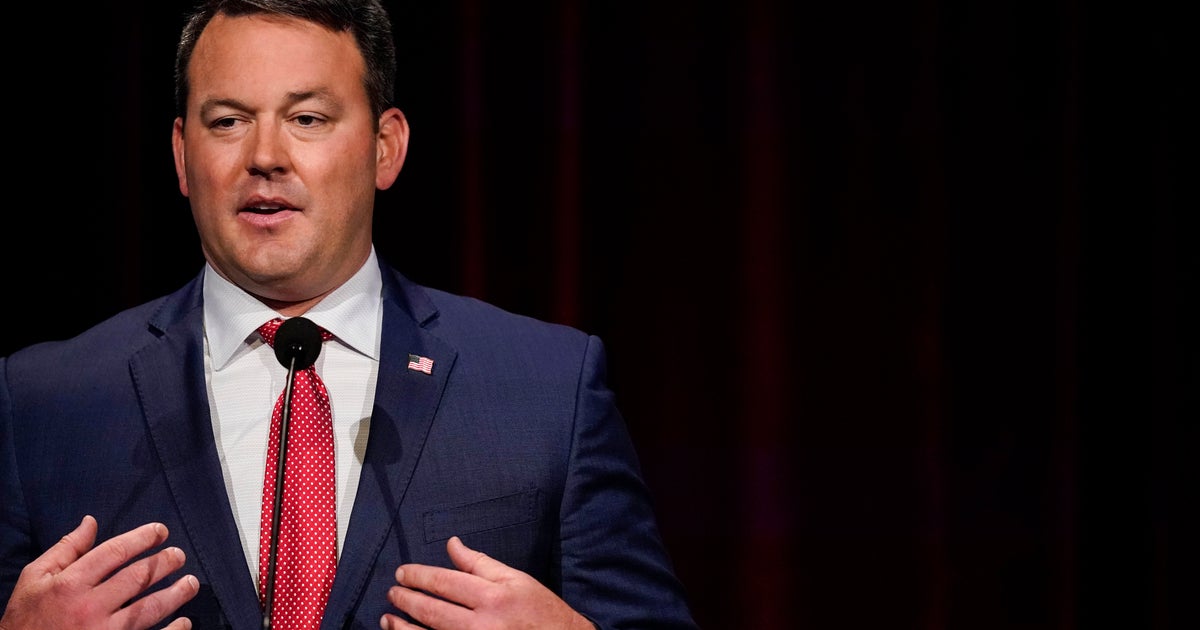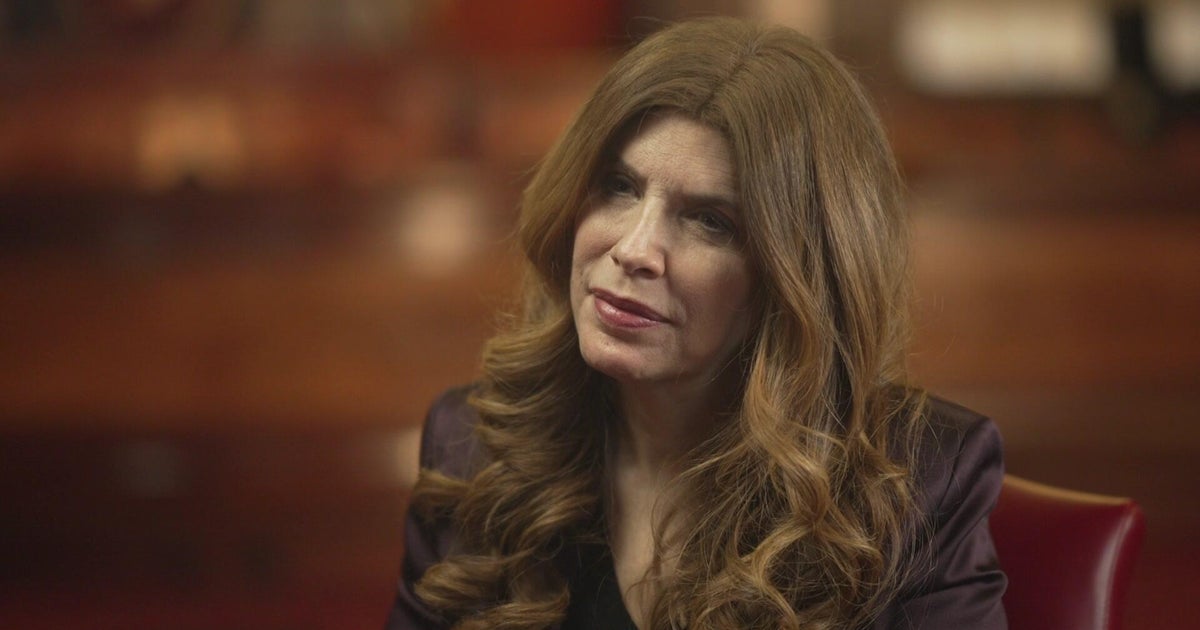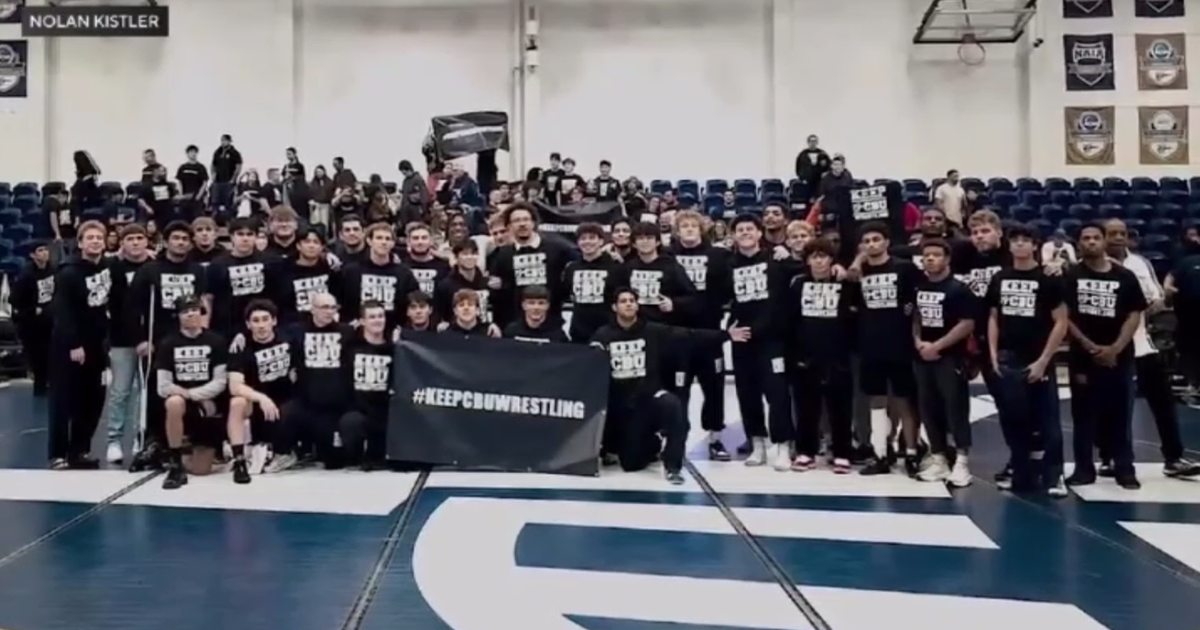New York Attorney General Letitia James supports legislation to protect, expand abortion access with Roe v. Wade in question
NEW YORK -- New York is looking to expand access to abortion after reports surfaced that the Supreme Court may be ready to overturn Roe. v. Wade.
If Roe is overturned, New York would likely see a surge of people forced to come here to get an abortion, CBS2's Dick Brennan reported.
Monday, New York Attorney General Letitia James announced an effort to get money to abortion providers and take care of people regardless of residency, income or insurance.
"Every person in this nation should have the freedom to control their own body," James said.
James, an outspoken supporter of abortion rights, joined other elected officials to promote legislation expanding abortion access.
"If Roe is overturned, 26 states will ban and/or are likely to ban abortion and 58 percent of women of reproductive age or about 40 million women live in those states," James said.
Many would be forced to go out of state for abortion care, which could put a strain on New York.
"No one should have to travel hundreds, if not thousands, of miles to get an abortion, but if they do, they need to know that New York is here for them," said Andrea Miller, president of the National Institute for Reproductive Health.
The new legislation would create a dedicated state program providing financial resources to abortion providers and patients.
"People who don't have insurance, don't have access to insurance, can get this care and it also provides resources for folks to get here, travel, child care," State Assembly Member Jessica Gonzalez-Rojas said.
James, who has publicly said she had an abortion 20 years ago, is helping spearhead the Reproductive Freedom and Equity Program to be overseen by the Department of Health, CBS2's John Dias reported.
"Bans will not stop abortions. Bans will only stop safe abortions," James said.
A leaked draft opinion by Justice Samuel Alito suggests the Supreme Court is ready to overturn Roe, the ruling that legalized abortion nationwide.
After widespread demonstrations over the the weekend, including outside the homes of some justices, the U.S. Senate is getting ready to vote on an abortion rights bill. It likely will not have the votes to pass.
"The bottom line is women across America would suffer irreparable damage and harm to their rights, their health and their dignity," Senate Majority Leader Chuck Schumer said.
"The abortion debate will not go away in the country. It will be decided by the people, not a handful of judges," said Sen. Lindsey Graham, a Republican.
In a weekend interview with USA Today, Senate Minority Leader Mitch McConnell said it's possible legislators could see a nationwide ban on abortion if the court overturns Roe v. Wade and if Republicans win control of Congress.
Democrats say that cannot happen.
"We are about to go to a perverse 'handmaiden's tale' reality, where we have a nation that a woman who is a survivor of sexual violence will be told just hours after her attacker finishes their violence that they have to bring a pregnancy to term," New Jersey Sen. Cory Booker said.
"They most certainly cannot strip the fundamental rights of half of the American population without a fight, and we are going to put up that fight," New Jersey Sen. Bob Menendez said.
The vote in the Senate will come Wednesday. Democrats want to force Republicans to vote to get them on the record on an issue that could be divisive during the midterm elections.
A CBS News poll released Sunday shows roughly 64 percent of Americans believe the Supreme Court should keep Roe v. Wade in place.
Watch: James announces legislation to protect, expand abortion access
New York Attorney General Letitia James announced new legislation she says is designed to protect and expand access to abortion in the state.
"Every person in this nation should have the freedom to control their own body and their own health care, and this fundamental right is implicit in our constitution, and that right should not be abridged and or denied," James said.
The new legislation will direct financial resources to abortion providers to help those who need financial support seek abortions. It will also provide for an expected influx of people from other states coming to New York to seek abortions.
"Over the past few years, as states have rolled back this right and made it harder to get an abortion, New York has already experienced an uptick of people coming to our state to get an abortion," James said. "According to the CDC in 2019, almost 9% of abortions performed in New York were for people from other states. That amounts to about 7,000 individuals."
James said one projection suggests that number might grow to 32,000 people per year from other states, should Roe vs. Wade be overturned.
"These funds will help individuals without insurance, or are having difficulty making ends meet," James said.
"The reality of the situation is that bans will not stop abortions," James added. "Bans will only stop safe abortions. And that's why we're here today."
Weekend of protests
It was a weekend of outrage across the U.S. with rallies in support of abortion rights, after a leaked draft majority opinion indicated the Supreme Court may end the Constitutional right.
Protesters even made their way to the homes of Justice Brett Kavanaugh and Chief Justice John Roberts.
"It is such a high stake situation that if it is a little noisy in the neighborhood, in comparison to what people in the country are facing, it's not a big deal," Chevy Chase resident Emily Ewers said.
In New York, the fear of demonstrations led to a heightened police presence at St. Patrick's Cathedral.
On Sunday, Democratic leaders said the battle on Capitol Hill isn't over.
"Here we are on Mother's Day, a week where the court has slapped women in the face, in terms of disrespect for their judgements about the size and timing of their families," said House Speaker Nancy Pelosi.
Senate Majority Leader Chuck Schumer said on Twitter, the "Supreme Court's reported decision is an abomination."
"The abortion debate will not go away in the country. It will be decided by the people, not a handful of judges," Sen. Lindsey Graham, a Republican, told Fox News.
"I would only support legislation in South Carolina that have exceptions for rape and incest and life of the mother," said Republican U.S. Rep. Nancy Mace.
However, Senate Minority Leader Mitch McConnell told USA Today a national abortion ban is not out of the question.
That's something local lawmakers are sounding the alarm on.
"If Republicans get control of the House and the Senate and the White House, which certainly could happen in the next three years, they are absolutely going to pass a national ban on abortion," Connecticut Sen. Chris Murphy said.
"When women make that decision to have a baby, it is a joyful decision that they are making. But if you take away that right and require forced pregnancies, you are literately undermining their basic civil rights," Murphy added.
Abortion in America: A timeline
Washington — Since the Supreme Court ruled nearly 50 years ago in the case Roe v. Wade that the Constitution protects the right to an abortion, the debate over the issue has raged at the federal and state levels.
But the fight over the constitutional right to an abortion will reach its zenith in the coming weeks, when the Supreme Court will issue its highly anticipated decision in a legal fight over a Mississippi law banning abortions after 15 weeks of pregnancy.
Mississippi officials called for the court, now with a 6-3 conservative majority, to use the case known as Dobbs v. Jackson Women's Health Organization as a vehicle for overturning its past abortion decisions, and a draft majority opinion circulated among the justices in February that was published by Politico this week suggested the Supreme Court may do just that.
The forthcoming decision follows a decades-long campaign driven by anti-abortion rights advocates to convince the Supreme Court to reverse its 1973 decision in Roe v. Wade, which sparked a host of legal battles as states implemented restrictions that tested the bounds of when the constitutional protection for the right to an abortion is infringed upon.
Click here for a look at the key court fights, beginning with Roe, that brought us to this moment in the history of abortion rights in the United States:









